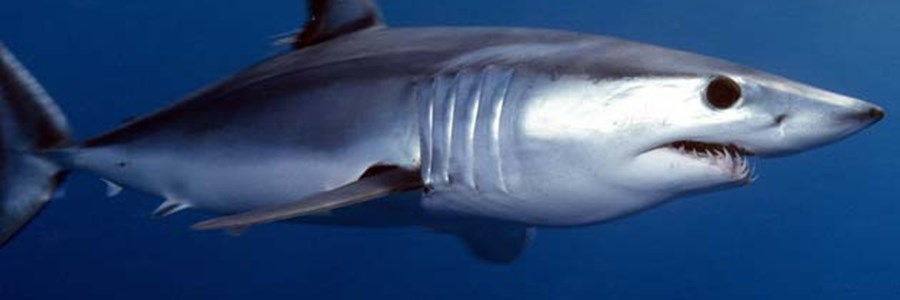Europêche rejects EU proposal to restrict mako shark trade

The European fishing industry represented by Europêche opposes the inclusion of shortfin mako shark in Appendix II of CITES which would severely curtail the international trade of the species. Particularly, the sector rejects the EU initiative to co-sign a Mexican proposal for this purpose. Europêche believes that this initiative lacks both scientific and legal basis in light of the strong regulatory framework within the context of Regional Fisheries Management Organizations (RFMOs) and other Regional Agreements, the biological characteristics of the species as well as the absence of illegal trade related to these stocks. Consequently, the species is sufficiently protected and regulated so as to ensure its sustainable exploitation and legal trade.
Appendix II of CITES lists species that are not necessarily now threatened with extinction but that may become so unless trade is closely controlled. By the 24 December 2018, parties to the CITES Convention must submit their proposals to amend and possibly include other species in the Appendix. These will be considered by the decision-making body of CITES in May 2019.
Following a proposal from the government of Mexico to include mako shark in Appendix II of CITES, the EU expressed its willingness to support this initiative. If adopted, the international trade of this species would only be authorized under very exceptional circumstances, including the need to obtain an export permit. The sector insists that a trade limitation of the species would have a massive economic impact on the European surface longline fleet. Only in Spain, the sales notes of shortfin mako show that almost 3.000 tonnes in 2017 and 2.000 tonnes in 2016 were sold, with associated profits of around € 10 mill. and € 8 mill. respectively.
Europêche argues that shortfin mako has been adequately regulated by RFMOs such as ICCAT. This recognised body has produced several scientific evaluations on the populations of shortfin mako for both the North and South Atlantic stocks. In light of the 2017 scientific advice, ICCAT adopted strong measures to ensure the sustainability of this fishery. These tools allowed for a positive recovery forecast of this fish population, whose situation will be reviewed by ICCAT’s Scientific Committee in 2019.
Furthermore, shortfin mako is already included in Appendix II of the Convention on Migratory Species (CMS) Agreement. Therefore, Europêche stresses that the possible inclusion of mako shark in Appendix II of CITES would undoubtedly lead to legal uncertainty and duplication of regulations derived from different instruments that pursue the same purpose. The management of the species derived from different regulatory frameworks could also be difficult due to the interference of messages and objectives.
As for the biological characteristics of the shortfin mako, Europêche recalls that this pelagic shark species has a wide geographical distribution around the world, capable of rapid reproduction.
The sector maintains that the situation of the shortfin mako is not comparable in terms of conservation to the rest of the species included in Appendix II of CITES, especially if compared with for instance, hammerhead or whale sharks, which have a markedly worse status. Since the state of conservation of the latter species is different from that of the shortfin mako, they also require different management and protection measures.
According to reliable import/export data from the most representative European country in the mako fishery, Spain, the international trade of mako shark does not constitute a threat to the survival of these species. Indeed, less than 1% of international shipments up until today have been denied under suspicion of illegal trade in this country. Javier Garat, president of Europêche, commented: “Two clear conclusions can be drawn from the available trade data: there is no market demand for unauthorised mako shark products and governmental controls have effectively restrained any attempt to illegally commercialise this species. This is especially relevant to support its non-inclusion in CITES, since preventing illegal trade of certain species is precisely the purpose pursued by the Convention.”
Garat concluded: “We urge the European Commission to abstain from proposing or associating with 3rd countries to advocate the inclusion of shortfin mako in Appendix II of CITES. Apart from being scientifically and legally wrong, it would generate unnecessary red tape and bring about adverse socio-economic effects to the fishing fleet targeting sustainable shark stocks with little or no alternative to catch other species. RFMOs such as ICCAT, and not CITES, are better suited in this case to closely monitor the state and progress of mako shark stocks and to regulate the species accordingly.”
ENDs
Press contacts:
Daniel Voces, Managing Director of Europêche: +32 2 230 48 48 europeche@europeche.org
Sources: Europêche
Attachments:
Tags: mako shark, CITES, trade, RFMOs, mexico, Appendix II, eu, trade ban, European surface longline fleet, iccat, Convention on Migratory Species, CMS, socio-economic viability